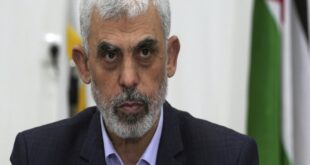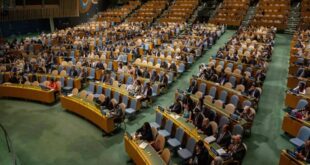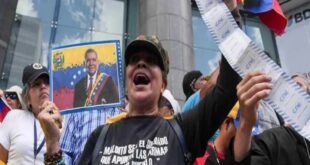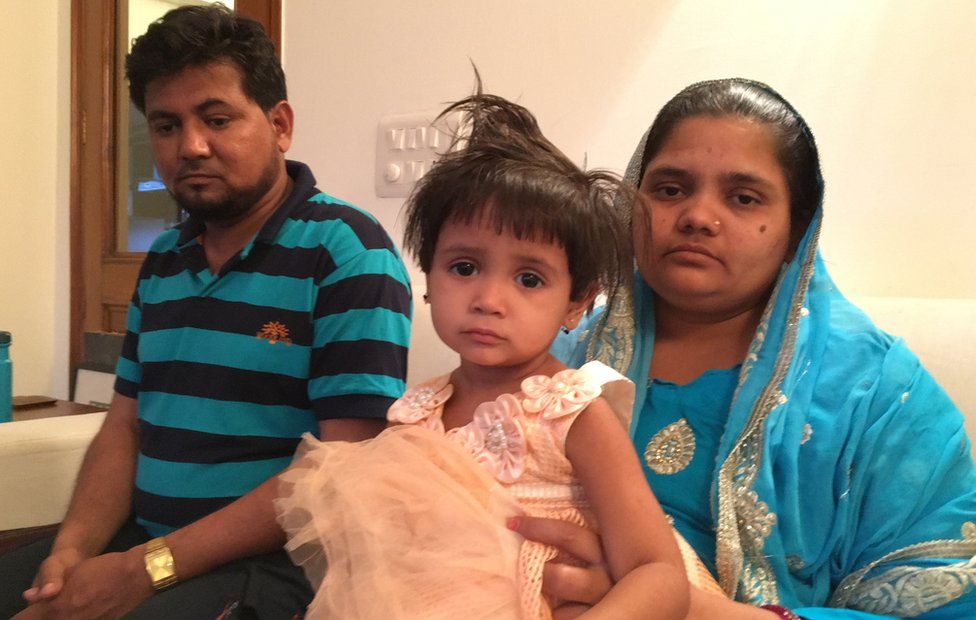
Bilkis Bano, who was gang-raped and saw 14 members of her family being murdered by a Hindu mob during the 2002 anti-Muslim riots in the western Indian state of Gujarat, is back in the headlines.
On Monday, 11 convicts who were serving life sentences for rape and murder in the case, walked out of prison to a heroes’ welcome.
A video that has since gone viral showed the men lined up outside the Godhra jail while relatives gave them sweets and touched their feet to show respect.
The decision to free the convicts was announced by the Gujarat government on Monday, as India celebrated its 75th anniversary of independence.
The move by the state government – the Hindu nationalist Bharatiya Janata Party (BJP) is in power in both Gujarat and nationally – has been criticised by opposition parties, activists and several journalists, who say that it goes against the rights of minority Muslims. Attacks on the community have risen sharply since the BJP formed the federal government in 2014.
A senior official said a government panel had approved the convicts’ application for remission as they had spent 14 years in jail, as well as other factors including their age and behaviour in prison. The men, who were first convicted by a trial court in 2008, have spent 15 years in prison.
But many have pointed out that the release was in contravention of guidelines issued by both the federal government and the Gujarat state government – both say that rape and murder convicts cannot be granted remission. Life terms in these crimes are usually served until death in India.
The biggest setback, predictably, has been for Bilkis Bano and her family.
« For several minutes late on Monday evening, Bilkis Bano could not believe that the convicts had walked free – she first broke into tears and then went silent, » her husband Yakub Rasool told The Indian Express. « We have been left numb, shocked and shaken, » he added.
The newspaper said that when they contacted Bilkis Bano on Tuesday, she said: « Please leave me alone… I have offered duas [prayers] for the soul of my daughter Saleha [the three-year-old was among the murdered] ».
The anger and despondence of the family is easy to understand considering the magnitude of the crime and the protracted battle they had to fight for justice.
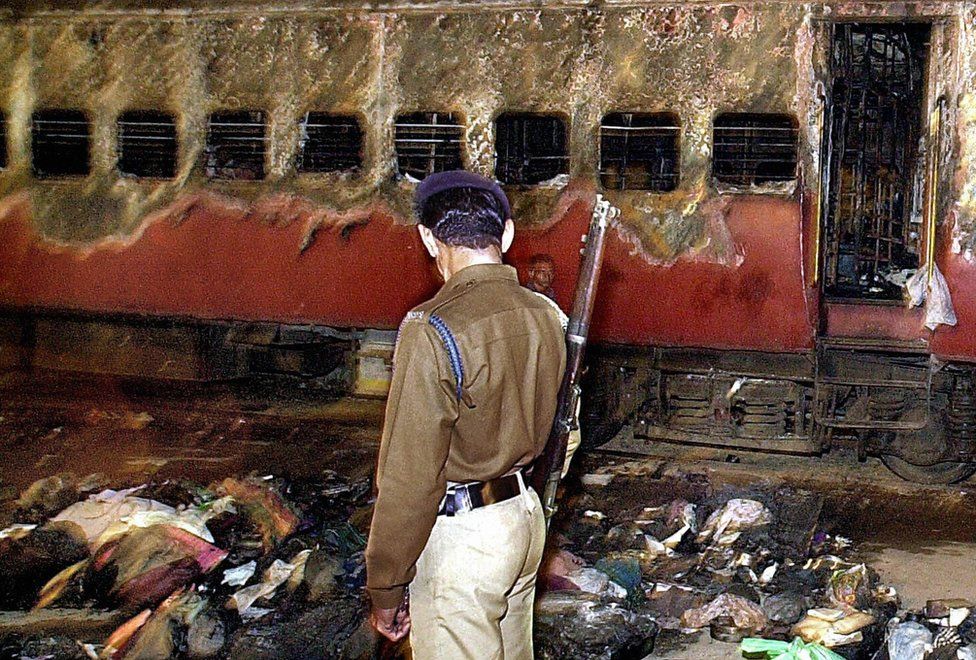
The attack on Bilkis Bano and her family was one of the most horrific crimes during the riots, which began after 60 Hindu pilgrims died in a fire on a passenger train in Godhra town.
Blaming Muslims for starting the fire, Hindu mobs went on a rampage, attacking Muslim neighbourhoods. Over three days, more than 1,000 people died, most of them Muslims.
Narendra Modi, who was then Gujarat chief minister, was criticised for not doing enough to prevent the carnage. He has always denied wrongdoing and has not apologised for the riots.
In 2013, a Supreme Court panel also said that there was insufficient evidence to prosecute him. But critics have continued to blame him for the riots happening on his watch.
Over the years, the courts have convicted dozens of people for involvement in the riots, but some high-profile accused got bail or were exonerated by higher courts.
This included Maya Kodnani, an ex-minister and aide to Mr Modi, whom a trial court had called « the kingpin of the riots« .
And now the men who wronged Bilkis Bano have also been set free.
I met Bilkis Bano in May 2017 at a safe house in Delhi, just days after the Bombay High Court had confirmed the life sentences of the 11 convicted in her case.
Fighting back tears, she recounted the horrors of the attack.
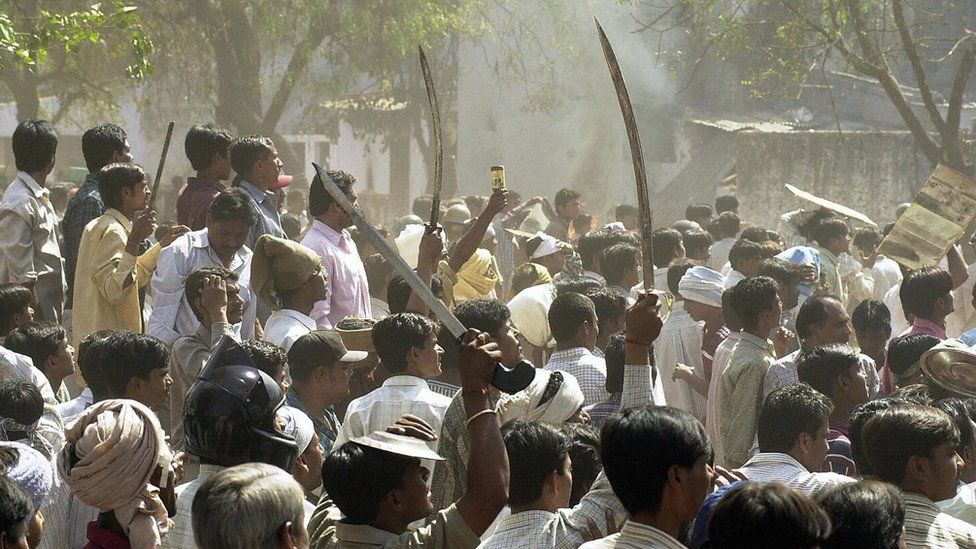
The morning after the train fire, Bilkis Bano – then 19 and pregnant with her second child – was visiting her parents in a village called Randhikpur near Godhra with her three-year-old daughter.
« I was in the kitchen making lunch, when my aunt and her children came running. They said their homes were being set on fire and we had to leave immediately, » she told me. « We left with just the clothes we were wearing, we didn’t even have the time to put on our slippers. »
Bilkis Bano was in a group of 17 Muslims that included her daughter, her mother, a pregnant cousin, her younger siblings, nieces and nephews, and two adult men.
Over the next few days, they travelled from village to village, seeking shelter in mosques or subsisting on the kindness of Hindu neighbours.
On the morning of 3 March, as they set out to go to a nearby village where they believed they would be safer, a group of men stopped them.
« They attacked us with swords and sticks. One of them snatched my daughter from my lap and threw her on the ground, bashing her head into a rock. »
Her attackers were her neighbours in the village, men she had seen almost daily while growing up. They tore off her clothes and several of them raped her, ignoring her pleas for mercy.
Her cousin, who had delivered a baby two days earlier while they were on the run, was raped and murdered and her newborn was killed.
Bilkis Bano survived because she lost consciousness and her attackers left, believing she was dead. Two boys – seven and four – were the only other survivors of the massacre.
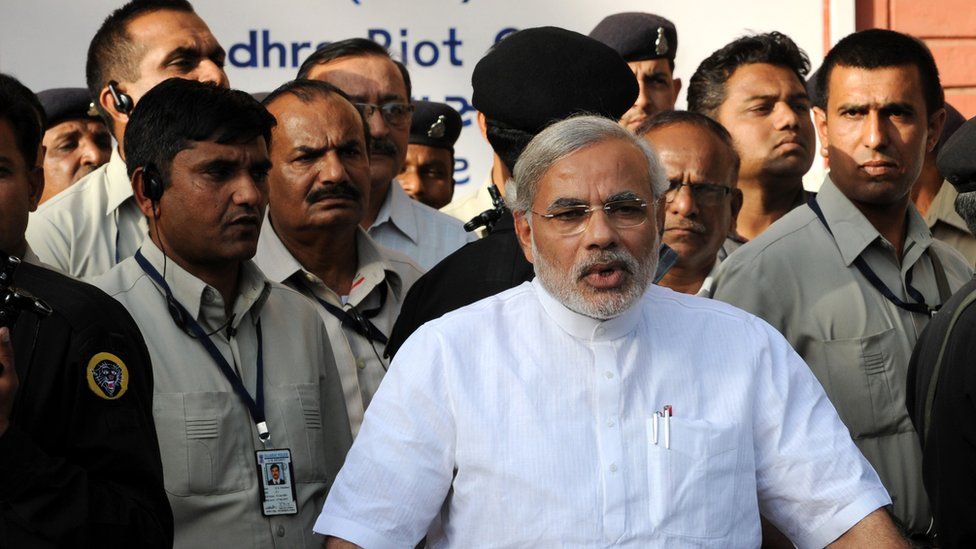
Bilkis Bano’s fight for justice was long and nightmarish. It has been well documented that some police and state officials tried to intimidate her, evidence was destroyed and the dead were buried without post-mortems. The doctors who examined her said she hadn’t been raped, and she received death threats.
The first arrests in the case were made only in 2004 after India’s Supreme Court handed over the case to federal investigators. The top court also agreed that courts in Gujarat could not deliver her justice and transferred her case to Mumbai.
Her fight for justice was also disruptive for her family – they’ve had to move home nearly a dozen times.
« We still can’t go home because we’re afraid. Police and the state administration have always helped our attackers. When we are in Gujarat, we still cover our faces, we never give out our address, » her husband had told me.
During trial, there were calls for the death penalty for Bilkis Bano’s attackers, including from herself.
But after the high court in Mumbai sentenced them to life, she told me she was « not interested in revenge » and « just want them to understand what they’ve done ».
« I hope they will one day realise the enormity of their crime, how they killed small children and raped women. »
But, she added, she wanted them « to spend their entire lives in jail ».
On Tuesday, Mr Rasool told the Indian Express that his wife was « distressed and melancholic ».
« The battle we fought for so many years has been wrapped up in one moment, » he said.
« We have not even had the time to process this news and we know that the convicts have already reached their homes. »

World Opinions – BBC News




 World Opinions Débats De Société, Questions, Opinions et Tribunes.. La Voix Des Sans-Voix | Alternative Média
World Opinions Débats De Société, Questions, Opinions et Tribunes.. La Voix Des Sans-Voix | Alternative Média

